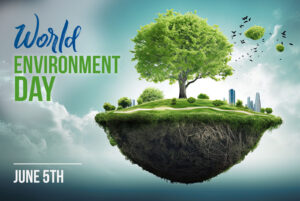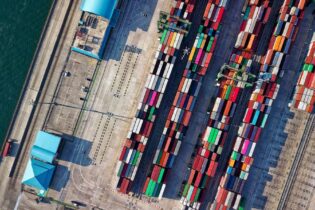June 5 is World Environment Day and this year’s theme is Land Restoration, Desertification & Drought Resilience.
“These concerns are of the utmost importance to South Africa because the country is greatly susceptible to all three,” says Leon Grobbelaar, past President of the Institute of Waste Management of Southern Africa (IWMSA).
The World Economic Forum describes desertification as gradual degradation of the productive soil, water, biodiversity, and vegetation in an already arid landscape. The Department of Forestry, Fisheries and the Environment (DFFE)’s National Action Programme for South Africa to Combat Desertification, Land Degradation and the Effects of Drought (2018-2030) notes that 91% of the country is drylands, making it especially vulnerable to desertification. In addition, South Africa’s annual average rainfall is just 464mm, compared to the global average of 860mm per annum. Apart from its naturally dry climate, the country has suffered regular droughts over the last several decades. These geographic factors have been exacerbated by man-made problems, such as climate change, deforestation, overgrazing of livestock, and unsustainable agricultural practices. “Desertification, land degradation and drought inevitably endanger food security and water availability, negatively impacting the health, productivity and prosperity of our society,” says Grobbelaar. The role of waste management
Waste management paves the way for land restoration and drought resilience by helping to preserve the existing condition of these resources. “It’s no good fighting to win back land and water if we continue contaminating them at the same time,” says Grobbelaar.
This means directing waste away from fertile soil and sources of water to protect what remains and lay the foundation for the renewal of affected areas. The term “waste” covers a wide array of elements, from everyday household refuse to electronic devices, organic matter, chemicals, and even nuclear materials Waste should be seen as a resource and hence the promotion and implementation of the circular economy and cradle to cradle principles.
Any number of these, discarded irresponsibly, threaten to contaminate soil and water, polluting the environment and the plant life, animals and humans that inhabit it.
In addition, waste management practices, like commodity recovery practises and composting, can accelerate land restoration and drought resilience. For example, composted organic waste or processed faecal sludge can enrich soil, returning it to a productive state, while efficient water sanitation ensures that scarce, clean water is rapidly cycled back into lakes and rivers. Innovating for the futureTo ensure these outcomes, it’s critical that new and innovative waste management techniques and technologies be implemented to keep pace with future needs. For example, the use of landfills as primary disposal option is not sustainable and alternative treatment and recovery solutions must be enforced and implemented. “We need new approaches, and the waste community continues to research more efficient methods and means to overcome current limitations,” says Grobbelaar. It’s appropriate that World Environment Day takes place in June, which is also Youth Month, because much of this innovation will come from a new generation of waste management professionals. The IWMSA recognises and fosters these new perspectives through its Young Professionals Group (YPG) in the hope of accelerating current programmes in the industry. “We have no doubt that they will contribute to a lusher, greener South Africa that promises health and happiness to all our citizens,” says Grobbelaar.







